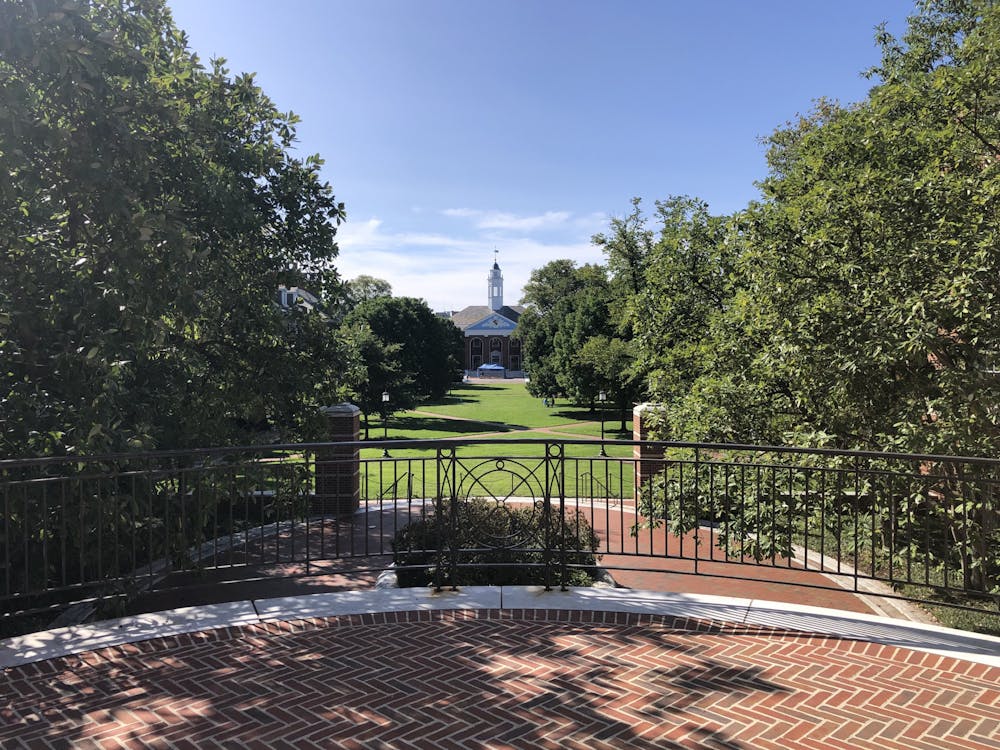Provost Sunil Kumar and Vice Provost for Student Affairs Alanna Shanahan announced in an email to the student body on Oct. 1 that the University will have a plan for the spring semester by Thanksgiving at the latest. They also noted that all intersession classes will be held virtually.
“We have important and difficult decisions ahead of us as we look to the spring semester, and right now we can tell you how we are approaching them, if not where we will ultimately land,” they wrote.
If Hopkins opens for the spring semester, all in-person activities will be optional for students and faculty, and no student will be required to physically be on campus. Most courses will continue to be offered remotely for students. The University is also considering changing the schedule for spring, such as starting the term later or cancelling spring break.
Senior Jonah Offman, a student from Canada residing in Baltimore, is planning to return home for Thanksgiving. However, he is struggling to finalize his plans because he needs to know the University’s decision for the spring before booking a return flight.
He believes a hybrid model could be possible for the spring.
“My brother is currently a sophomore at NYU. They’re in a hybrid right now. From what he’s told me, it’s been successful. It requires a lot of social distancing, a lot of responsibility on the part of the students,” Offman said. “I’d like to believe that at a school like Hopkins, you’re gonna get that from the students.”
Sophomore Puhe Tan, however, does not think that Hopkins will pursue a hybrid format since it ultimately went fully online for the fall semester.
Although from Shanghai, China, Tan is currently living in Baltimore. She shared in an email to The News-Letter that her plans for the school year will remain the same regardless of how the University operates in the spring.
“I signed the lease for an entire year. Because of my personal plans, I planned to stay in the U.S. for sophomore summer, but many of my Chinese friends are still waiting on a definite answer and following up on the travel ban news,” she wrote.
Junior Kennedy Onuoha, a First-Generation Limited-Income (FLI) student, highlighted that she was saddened but not surprised that intersession classes will be completely online. Because her living situation is not ideal, she would have preferred to return to campus sooner. She hopes that the University will provide more concrete plans of actions in future emails.
“I’m constantly worried about my health while I’m here because I have a job that exposes me to COVID, and my mom has a job that exposes her to COVID. It’s stressful,” Onuoha said. “I’m interested to see how Hopkins will handle things, especially making sure that we all have equitable access to an education, particularly Black and disabled students.”
Kumar and Shanahan emphasized in their email that the health and safety of all University affiliates is their priority. They are working closely with the Hopkins Health Advisory Group, Student Advisory Group and Academic Advisory Group to gather feedback and monitor the situation.
“We would like to offer everyone who wants to be on campus in person the opportunity to do so, and we are actively preparing for that possibility even as we determine whether it can be accomplished safely,” they wrote. “However, if the public health situation requires it, we will continue to hold all classes virtually for the rest of the year.”
The University is currently preparing a public health model to reduce the risk of COVID-19 if students return to campus. This includes testing for COVID-19, physical distancing in classrooms and labs, procedures for self-reporting symptoms and modifications to housing and dining.
Sophomore Amara Gammon, a FLI student, noted in an email to The News-Letter that while the University has made poor decisions in dealing with the pandemic, she is appreciative of its efforts to provide public health resources.
“I did enjoy how Hopkins is catering to its off-campus population by providing masks and hand sanitizer. It may seem small, but it's reassuring to know that the university has accounted for you and has plans in the event that someone catches coronavirus,” she wrote.
In the email, Kumar and Shanahan also said that they will begin sharing bi-weekly updates on the planning process with the student body.
However, Onuoha is skeptical of the University’s commitment to better communicate with the student body, citing her experience with the financial aid office this fall.
“I cannot afford to pay for this all to be online. I was messaging them, and they were not helping me. I was thinking ‘I’m gonna have to drop out of school,’” she said. “There was a lack of communication, and they also didn’t really seem to care at all. It was very frustrating.”
Gammon echoed Onuoha, stressing how the University failed to communicate its final plans for the fall in a timely manner.
“I am a little wary of Hopkins saying that they will email us every other week — we were offered prompt updates during the summer, and yet the school went radio silent for about a month,” she wrote. “Waiting for updates is nerve-wracking, but more so when they don’t arrive on time.”
The University is encouraging students to give their feedback and suggestions through its online form. A town hall on planning for the spring semester will be held on Friday, Oct. 2 from 6 p.m. to 7 p.m.
Ariella Shua contributed reporting to this article.





